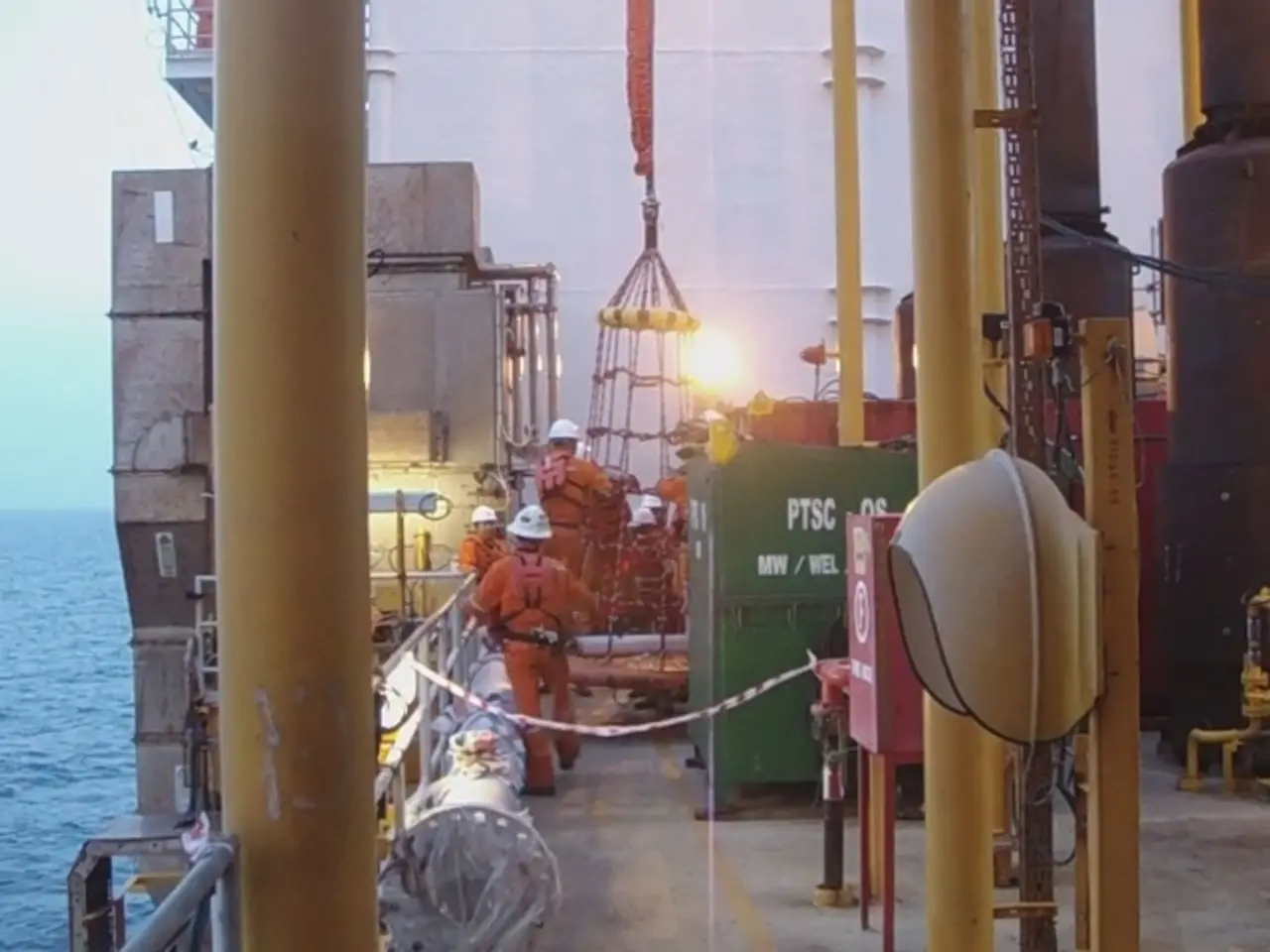Underwater Cleanup at Wismarer Bay: Divers Organizing Trash Collection
In the picturesque Wismar Bay off Boltenhagen, a 30-day operation to recover old ammunition has begun. The executing company, Baltic Diving and Salvage Company (Baltic Divers) in Rostock, has lowered underwater sorting stations into the water after environmental monitoring. The specialized platform "Baltic Lift," a former tanker owned by Baltic Divers, has been securely anchored at the site.
Approximately 15 tons of old ammunition, including grenades and tank shells, are expected to be recovered within the four-week period. The majority of this ammunition is likely to be found under meter-high soft sediment and mud.
However, concerns about the potential carcinogenic and mutagenic effects of the recovered ammunition have arisen. Old ammunition can contain hazardous substances like lead, mercury, arsenic, and other heavy metals, as well as chemical explosives. These substances are known to be toxic, and some are classified as carcinogens or mutagens.
Exposure pathways for these harmful substances include direct contact during recovery operations, leaching of chemicals into the marine environment, and bioaccumulation in marine organisms that could affect human food chains.
Carcinogenic effects might stem from chemicals like lead compounds and arsenic species that have long been associated with increased cancer risk. Mutagenic effects refer to the potential to cause genetic mutations, which certain explosive chemicals or their degradation products might induce.
Ammunition explosives such as TNT (trinitrotoluene) or its degradation products can be toxic, with some evidence pointing towards mutagenicity in exposed organisms. Because the ammunition is old and submerged, corrosion can enhance the release of such substances into the water, increasing environmental and human health risks.
Despite these concerns, the primary risk factor for this project, according to Wolfgang Sichermann, is not an explosion risk, but the release of explosives due to corroding containers.
The costs for the recovery near Boltenhagen are estimated at around five million euros, with a total of 100 million euros from federal funds available for this programme. The recovered ammunition will remain underwater in new special boxes until a date for a munitions transport by ship to Wismar is set, which is not expected to happen until mid-August at the earliest.
Mussels will be exposed on the seabed near the operation site to analyse potential pollutants after the four-week work is completed. A detailed risk assessment would require environmental chemical analyses of recovered material and sediments, as well as toxicological studies on local biota and human exposure.
The project aims to clarify whether recovery might have more negative influences than leaving the explosives on the seabed. It is hoped that this operation will contribute to a safer and cleaner environment in the Wismar Bay.
- In light of the potential environmental and health risks associated with the recovered ammunition, a detailed risk assessment will be required, involving environmental chemical analyses of recovered material and sediments, as well as toxicological studies on local biota and human exposure.
- The recovered ammunition, which may contain hazardous substances like lead, mercury, arsenic, and other heavy metals, poses concerns about carcinogenic and mutagenic effects, with potential exposure pathways including direct contact during recovery operations, leaching of chemicals into the marine environment, and bioaccumulation in marine organisms that could affect human food chains.
- Despite the concerns about the potential release of toxic substances from the old ammunition, the production costs for the four-week operation are estimated at around five million euros, with federal funds available for this program, suggesting that environmental science and industry are key elements in the financial management of this operation in the context of climate change and the preservation of the marine environment and human health.




